Kharkiv tries to return to a normal life, but the threat from Russia is still close
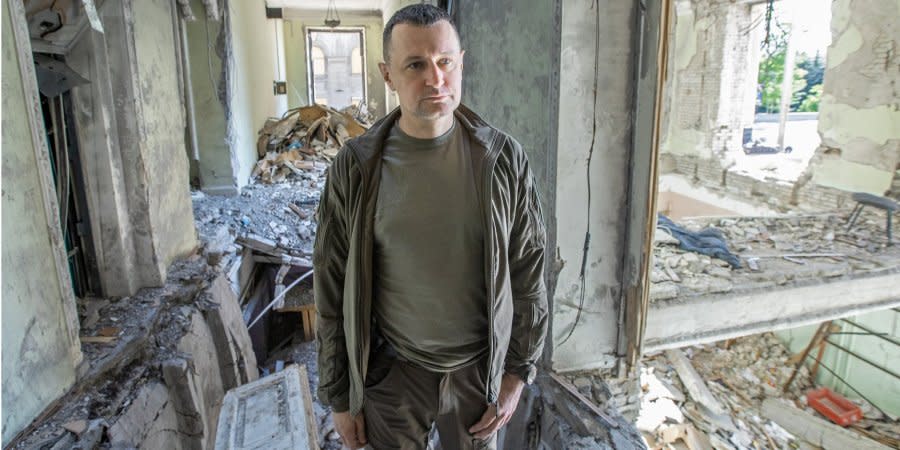
Read also: Fighting continues in Kharkiv Oblast as Ukrainian army advances to state border
In the city of Kharkiv there is a street food joint with an open courtyard, called “7th Warehouse” located near the Architect Beketov metro station. Before the war, seven different establishments with food and drinks were open here on the same site. A few weeks ago, four of them resumed work. When NV came here on the evening of a work day, there were very few visitors in this cozy courtyard - about five people.
Read also: Attacks in Kharkiv Oblast injure seven civilians, says governor
This is the second attempt to reopen the popular Kharkiv food court. The first was back in April, but then the Russians shelled the area next to the 7th warehouse. A neighboring McDonald's restaurant was badly damaged, and the sign with the name of the courtyard still has marks left by shrapnel.
“There were so many people this weekend, almost all tables were taken!” says Dmytro Nazarchuk, an employee of one of the local establishments. “I was sitting and thinking: that’s amazing, that’s very cool.”
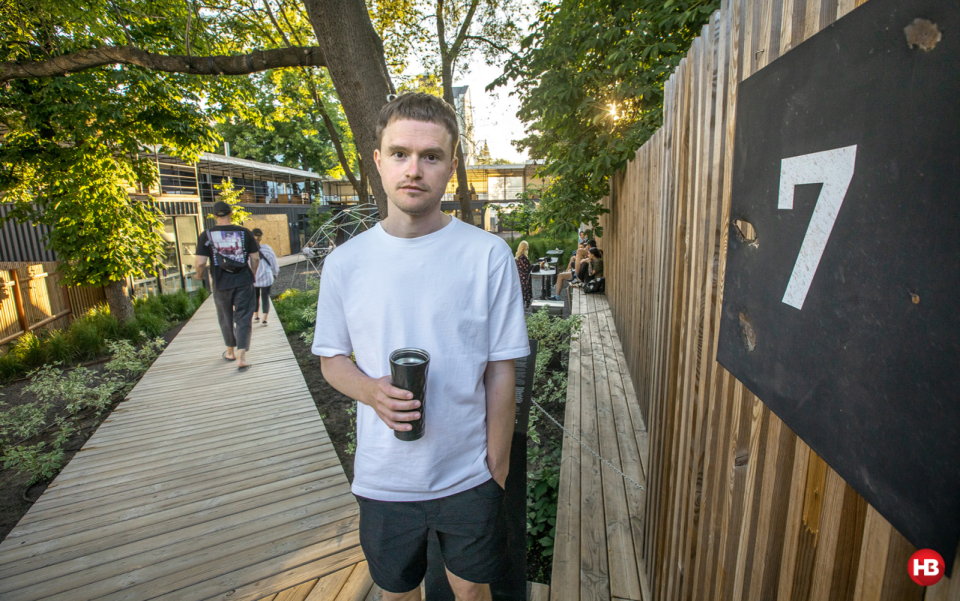
“But it’s also scary,” he admits.
Gathering a lot of people in an open space in Kharkiv still seems dangerous. Nazarchuk even had the idea of setting some kind of limit on the number of customers, as despite the improvement of the situation in the city, Russian troops continue to shell it.
Read also: Ukraine continues emergency evacuation under Russian shelling, Russia terrorizes civilians
Kharkiv now lives in a state of balance between peace and war.
After the Armed Forces of Ukraine managed to push the enemy away from the city in the spring and liberate part of the territory of the oblast, there was hope for a return to peaceful life for the million-plus metropolis, say locals. Public transport is back up and running. After a three-month shutdown, the subway resumed its activity on May 24. All this time, the subway was performing the function of a bomb shelter, but now it’s running again and is free of charge. Coffee houses, cafes and restaurants have opened as well.
“No one is making any money right now. Establishments have opened to charge the city's energy and to boost the mood of people – we aren’t doing this for profit,” says Mykhailo Chornomorets, a Kharkiv entrepreneur and restaurateur. One of his establishments is located on the territory of the 7th warehouse, but so far he is not going to risk reopening it. Mykhailo has been volunteering for more than three months, organizing the evacuation of people from Kharkiv Oblast and the Donbas, as well as helping the Armed Forces of Ukraine.
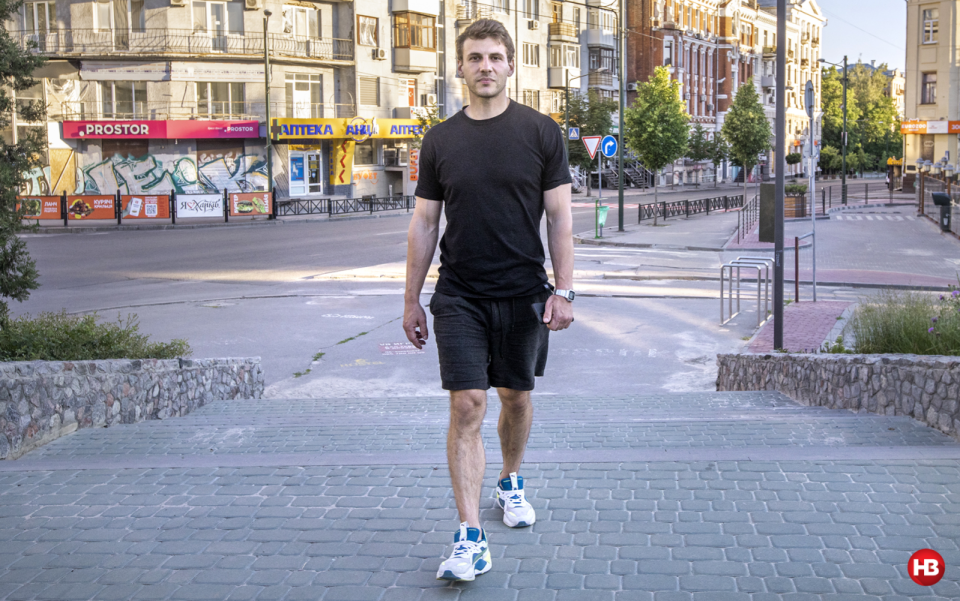
Kharkiv residents who evacuated to other oblasts are gradually coming back.
“According to estimates, 45% of the residents are now in the city, when during the period of active shelling there were no more than a third,” says Roman Semenukha, deputy head of the Kharkiv Regional Military Administration.
But the situation in the city is still dangerous, he notes. On the night of June 9, when NV journalists were staying in Kharkiv – three people were killed here and five more were injured as a result of the night’s shelling. A little earlier – on May 26 – enemy shelling killed nine citizens, including a young child.
"Why are they shooting? I think the Russian’s goal here is rather simple one – not to let us relax too much,” says Semenukha.
Between danger and life
Seventy-year-old Kharkiv poet Olena Kostyuk stands at the entrance of a residential building in Severnaya Saltovka, a huge Kharkiv residential area. Before Feb. 24, this area was a home for about half a million people – more than in many Ukrainian regional centers. She came here with her family to pick up her belongings from the second floor apartment where she has lived for 30 years.
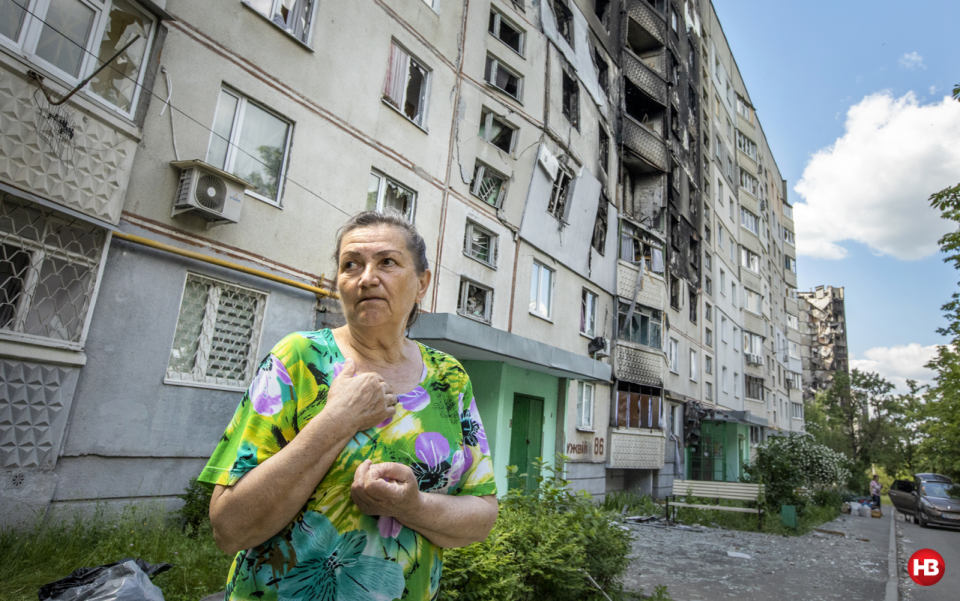
The stairs in the building are blocked after an explosion. Kostyuk's family are moving her things through the window on the second floor and leave the building themselves the same way. The poetess collects her belongings as she tells us how she fled from here in early March – the bombing of Severnaya Saltovka by the Russians was so intense that even staying in basements became dangerous. It was then that most of the locals left the area.
Read also: Russia has not abandoned its goal of crushing Ukrainian statehood
So Kostyuk moved, at first hiding in the subway with her family. Then she moved to the basement where her friends were hiding. She only recently agreed to move into an apartment that belongs to some of her friends, who have temporarily fled to France.
Looking at her apartment building on Saltovka, Kostyuk understands that there is no way she can return here – the building is in a dangerous condition and will have to be demolished.
Read also: Burnt bodies of tortured civilians found near Kharkiv
Kostyuk, whose mother is Galician and father is Russian, says she never expected a brutal attack from a neighboring country. “I had such a happy childhood. My parents loved each other so much. We had both vyshyvankas and balalaikas at home,” says the poetess, who dedicated many of her works to the city of Kharkiv.
All her life, Kostyuk spoke Russian, but now she is trying to write poetry in Ukrainian and has radically changed her attitude towards the Russian Federation. “I write to my sister in Russia: look what they have done to my home. We were so proud of our city, it was so beautiful,” says the woman.
Read also: Russia aims to hold ground near Kharkiv, says Ukraine’s General Staff
As we talk. the sounds of shelling are heard somewhere in the distance. But the Kharkiv resident does not react: She says that compared to what happened in March, this is almost silence.
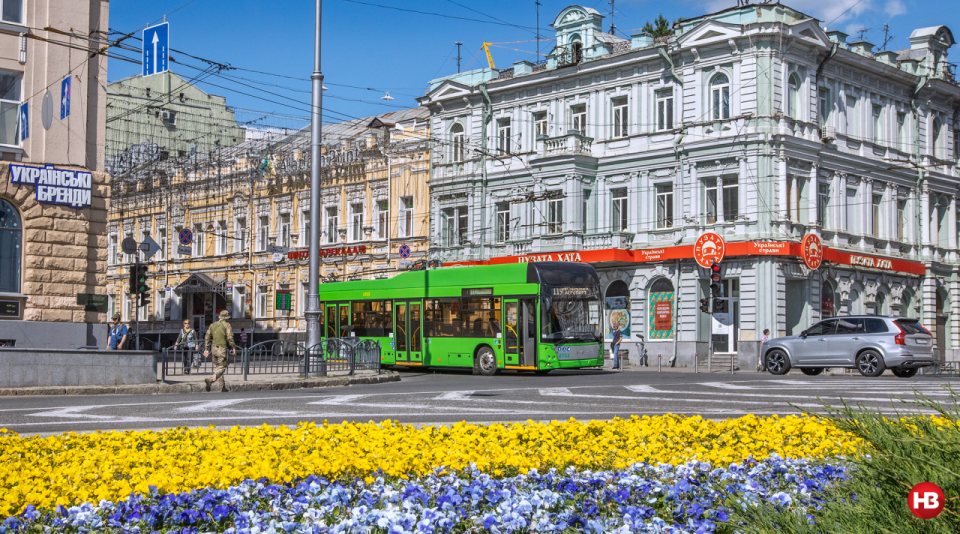
People began to return to Kharkiv even before the intensity of shelling decreased, and the Ukrainian Armed Forces liberated some of the villages in the oblast, explains Semenukha. “People began to return once there was a clear realization that Kharkiv wouldn’t surrender. In order to capture the city, the Russians need to physically kill everyone in here,” says the deputy head of the oblast.
Semenukha recalls seeing the first signs that life returns to the city. It was at the end of March when utility vehicles began to clean the dirt on the city streets.
“I thought it was surreal,” smiles Semenukha.
Read also: Life in Kharkiv: Ukraine’s second largest city during wartime
Soon, traffic lights began to work in the city. Then gradually some coffee shops began to open, the transport started working and the number of civilian vehicles increased.
On May 20, even the “Vivat” book store has opened on on Kvitki-Osnovyanenko Street.
A sales assistant of this store, Ruslana Brukova, says that on the day of opening, a meeting was held here with the writer Serhiy Zhadan who holds charity concerts and raises money for the Armed Forces of Ukraine.
“There were a lot of visitors. Customers are very happy that we are open again,” says Brukova, wearing a T-shirt that says “Read, Dream, Act”.
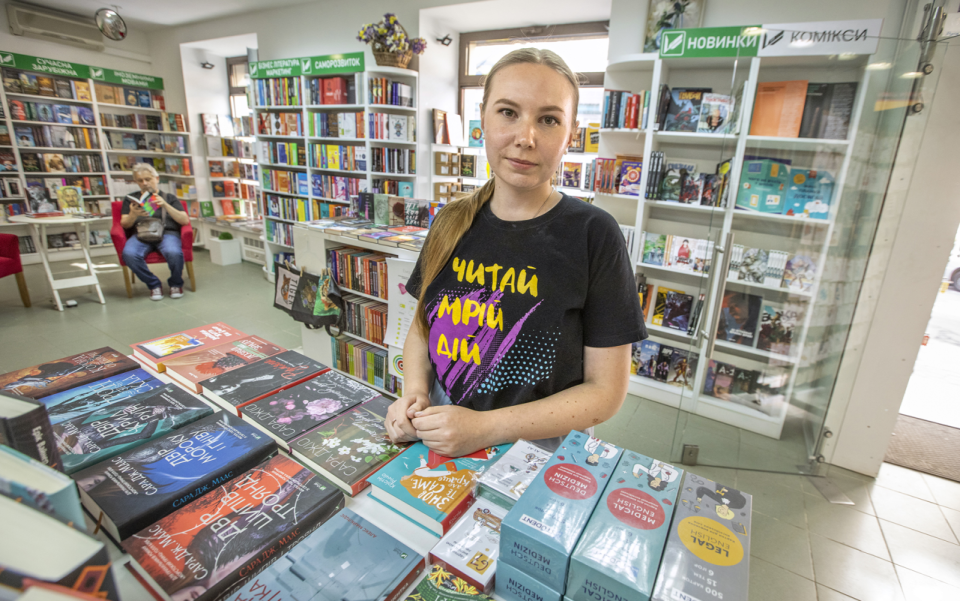
According to her, now readers have become more interested in historical literature. And last week's bestseller was British Prime Minister Boris Johnson's book “The Churchill Factor.”
Readiness for defense
“If I were asked what impressed me more in this war, it was the high motivation levels of the citizens of Kharkiv,” says Semenukha, with whom NV is talking in the premises of the Regional State Administration destroyed by enemy rockets.
“When you see thousands of people who never, perhaps, even went to pro-Ukrainian rallies, and now this moment (the war) has become a defining one for them,” she continues. That was inspiring when there was a huge risk of the Russians breaking into Kharkiv, and it continues to be inspiring now, she says.
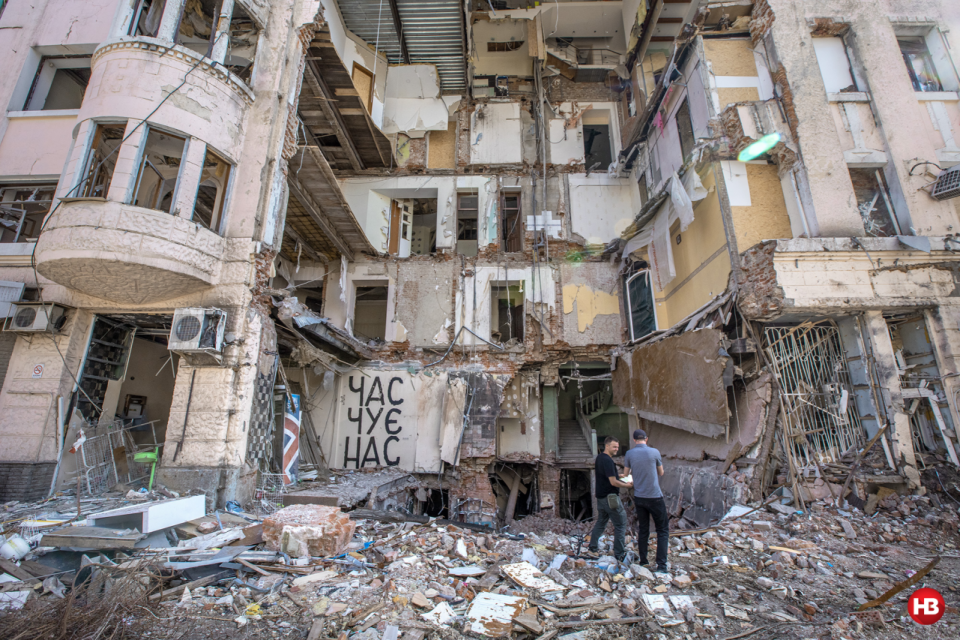
“A huge number of people stood up as one,” says one of the defenders of Kharkiv, Serhiy Bystrov. “What was happening or how many Russians are against us – no one could understand that back then. But everyone understood that it was necessary to defend the city.”
Read also: Russia relocates entire factory from near Kharkiv, sets up concentration camp in its place
As he watches the return of peaceful life to the streets, he notes several trends. Firstly, the locals have developed immunity to the sounds of war – and this is bad. People have also run out of savings, so Kharkiv residents simply dream of returning to work, while those who left dream of coming back to the city.
“But if they can be patient and not return yet, it’s better to wait,” Bystrov said.
Read also: Putin's Russia might repeat the fate of the USSR
The same opinion is shared by Chornomorets, who, together with like-minded people, founded the Rescue Now charitable foundation, which helps with the evacuation of residents of Kharkiv Oblast and the Donbas. Only last week the businessman-volunteer moved to spend the night in an apartment. Before that he slept in the basement of the Molodist restaurant, one of his Kharkiv establishments.
In three months, the volunteers of the restaurateur's team managed to evacuate more than 11,000 people. Now every day they evacuate 150 people from the Donbas.
The charity, which now includes 220 people, is more like an IT company, says Chornomorets. There is a call center, logistics departments, financiers, lawyers. Volunteers also fundraise money and buy the necessary equipment for the military – from quadcopters to sleeping mats. Chornomorets, which now has three canceled projects in Kharkiv, doesn’t plan to return to the restaurant business. It wouldn’t be worth it, he says.
For those Kharkiv residents who left the city, the Chornomorets recommends that they postpone their return. Despite the large number of signs of peaceful life, shelling of the city continues.
Read also: 100 days of full-scale Russian invasion in numbers
“I understand that everyone is bored and tired. But to find a job in safer oblasts, to pay taxes and not run into trouble – that seems to me so far to be the more correct and logical thing to do,” says Chornomorets.

